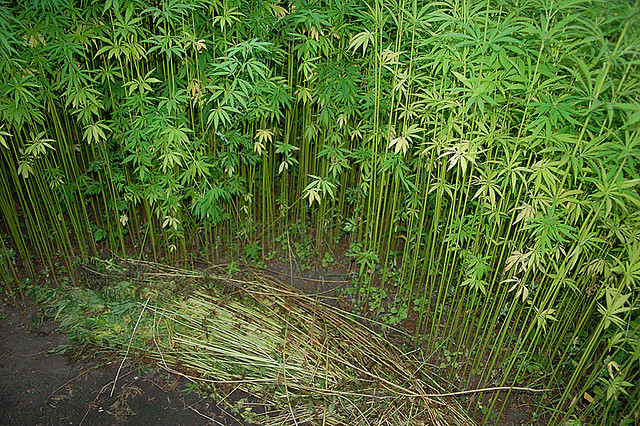Source: personalliberty.com

The Hemp Industries Association is petitioning the Drug Enforcement Administration to de-schedule hemp, the non-psychoactive plant related to marijuana, and allow states the right to unlock its massive economic and industrial potential.
The activists are basing their push for hemp legalization on a little-known change in the 2014 Farm Bill which made a distinction between hemp and its psychoactive cousin marijuana based on a threshold of tetrahydrocannabinol (THC), the substance which produces a high from cannabis.
Industrial hemp, according to the legislative change, contains less than o.3 percent THC– such low levels would make it impossible for the plant to cause a high upon ingestion.
Via the Hemp Industries Association:
Currently, all forms of cannabis are classified as a Schedule I substance—meaning they are controlled to a greater degree than either cocaine or most methamphetamines. The CSA treats industrial hemp plants the same as drug marijuana plants solely because they are of the same species, even though industrial hemp has no potential whatsoever for drug abuse. Despite progress toward hemp farming legalization made in the 2014 Farm Bill, which permitted hemp cultivation agricultural pilot projects in states that have legalized cultivation of industrial hemp, hemp cultivation remains prohibited at the federal level. If successful, the petition would remove from Schedule I industrial hemp plants…
Twenty-nine states have already taken steps to investigate commercial hemp production– but because the plant remains illegal under federal law, cultivation has largely been relegated to pilot programs under government supervision.
If the federal law changes, advocates say hemp would quickly reclaim its historical status as an American cash crop. Industrial hemp can be used to produce clothes, cars, plastics, building materials, rope, paper, linens, food and medicine, among other things.
“Hemp is a crop with deep roots in American history dating back to some of our first farmers including Presidents George Washington and Thomas Jefferson,” said Eric Steenstra, Executive Director of the Hemp Industries Association.
Hemp prohibition in 1937 as a result of government propaganda about the dangers of its psychoactive relative marijuana and cronyism by American business magnates who saw the plant as a threat to fortunes built around the production of synthetic plastic and textile products that could be manufactured more cheaply with hemp.
No comments:
Post a Comment